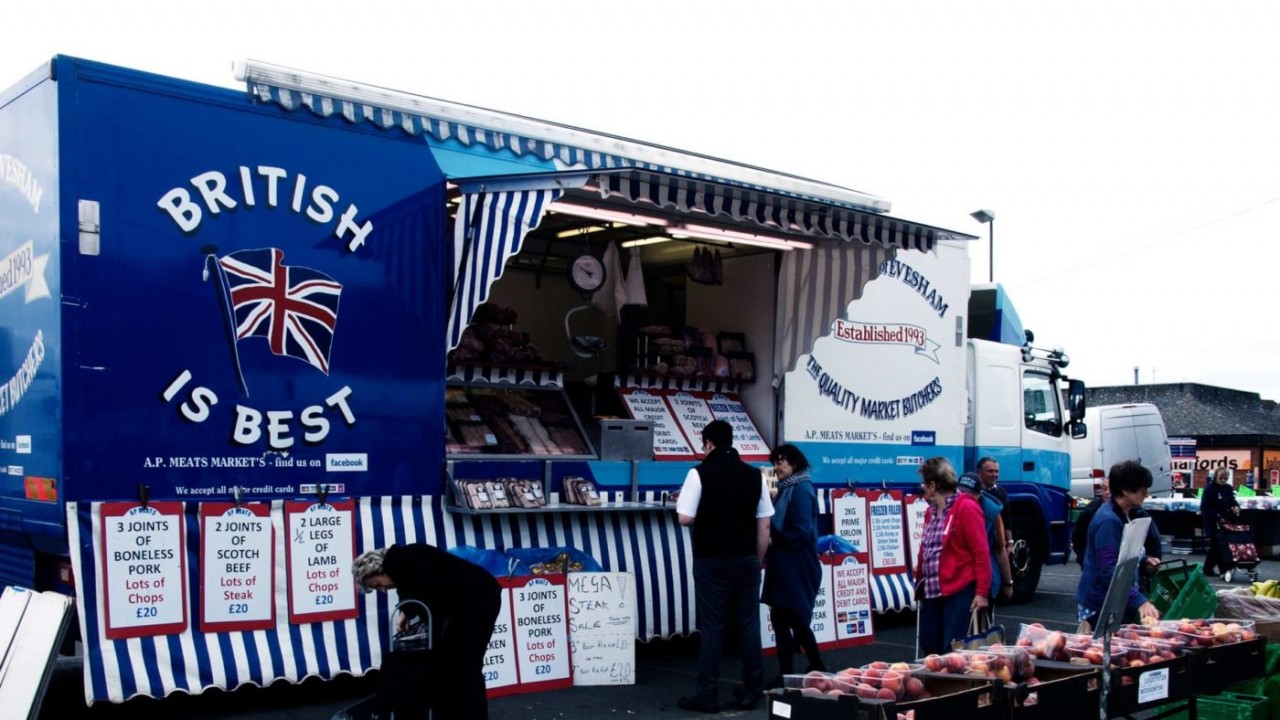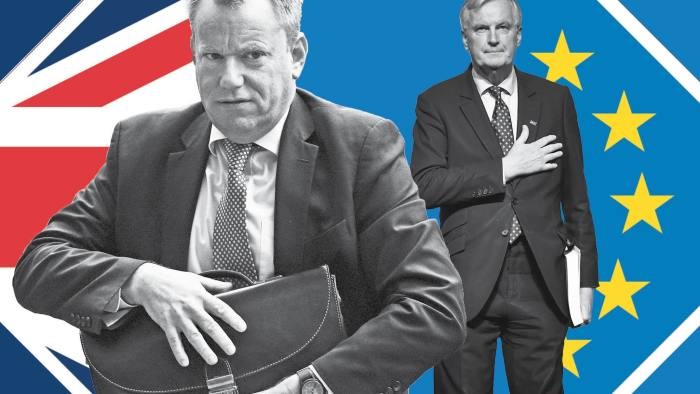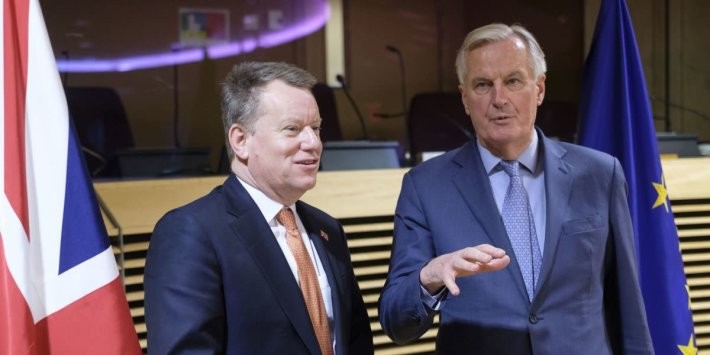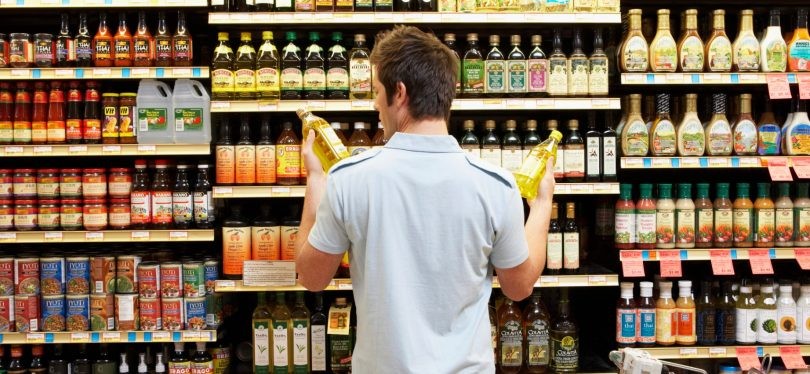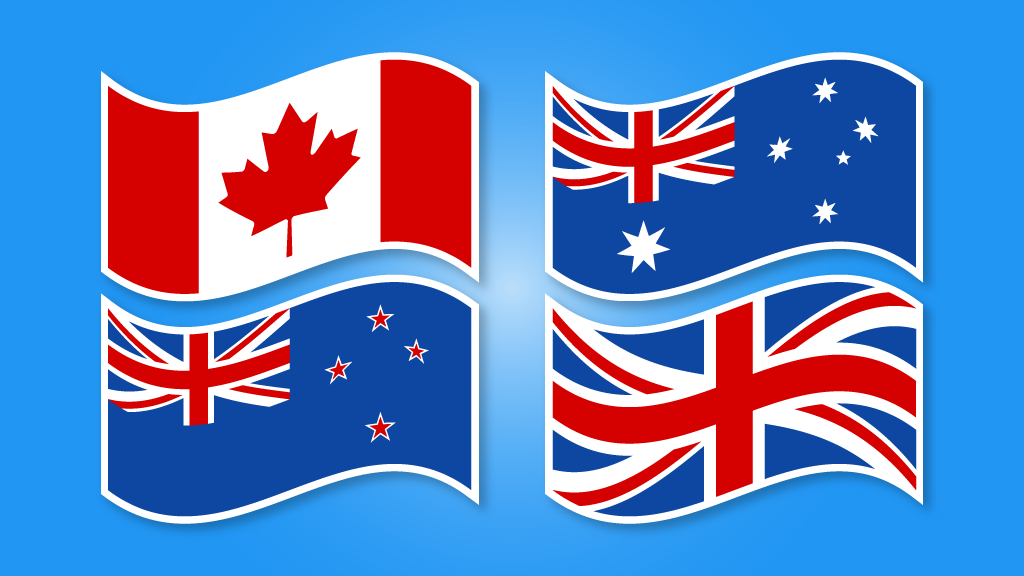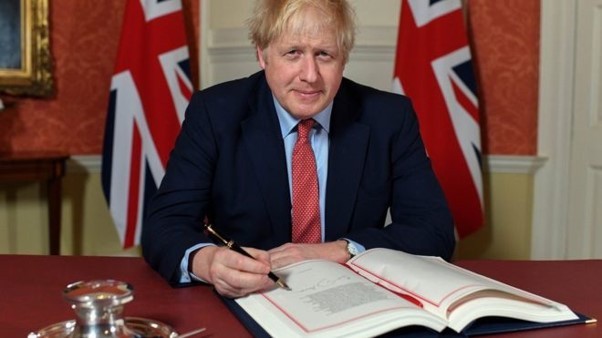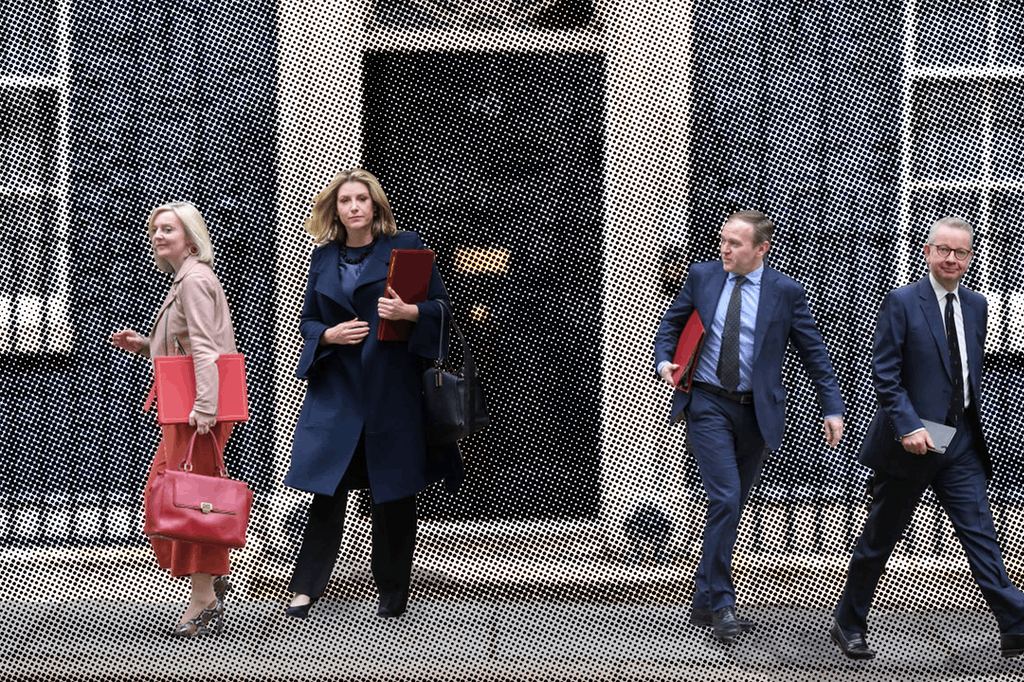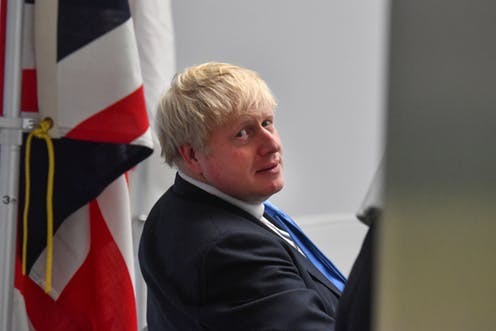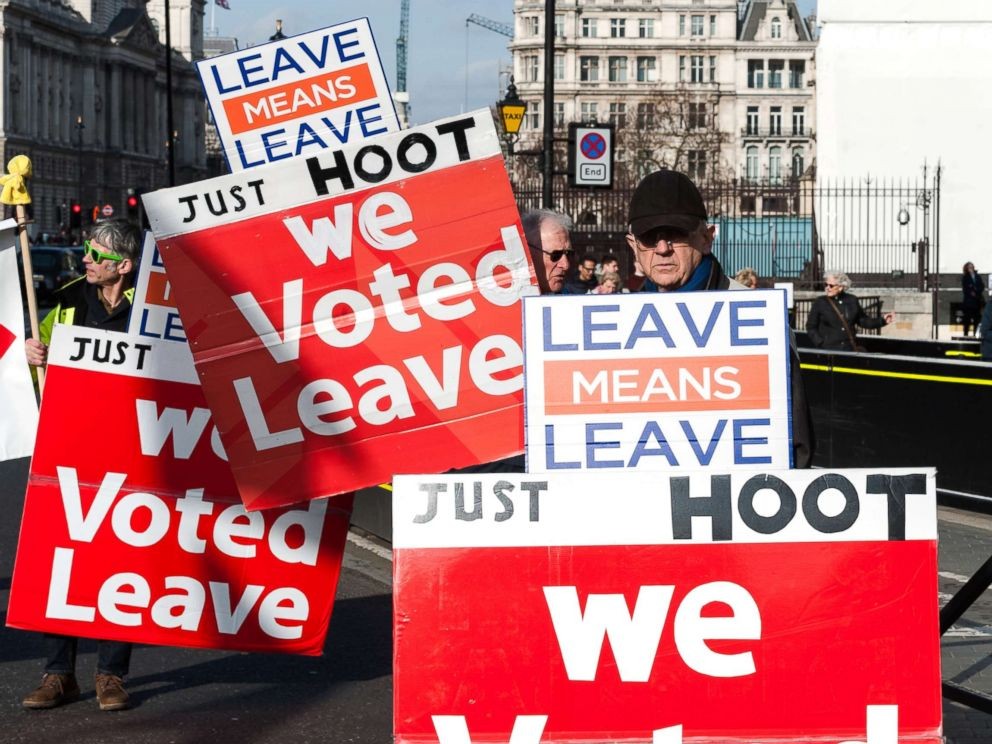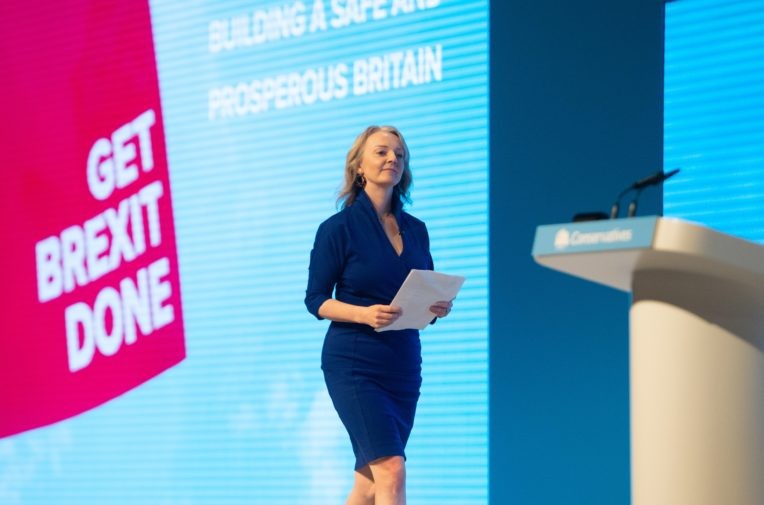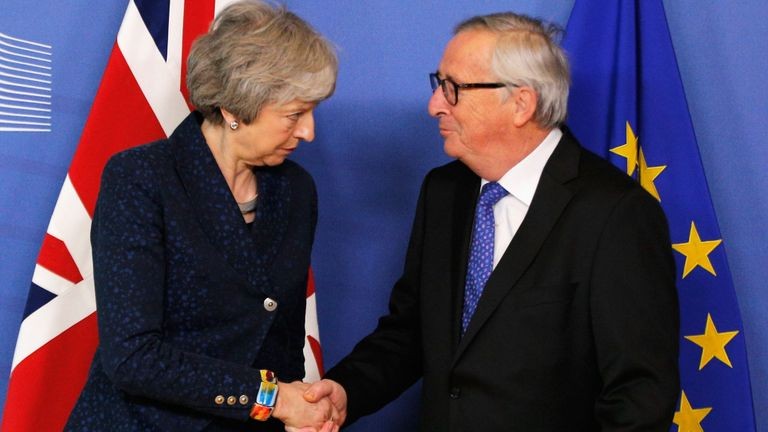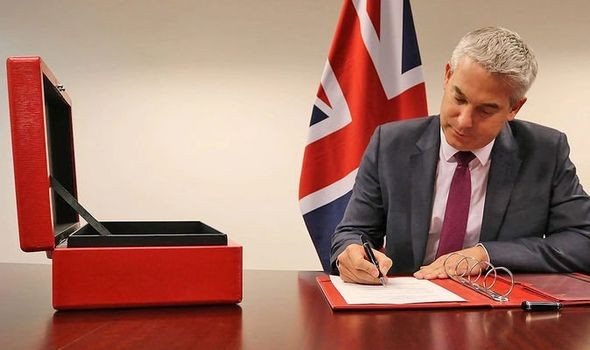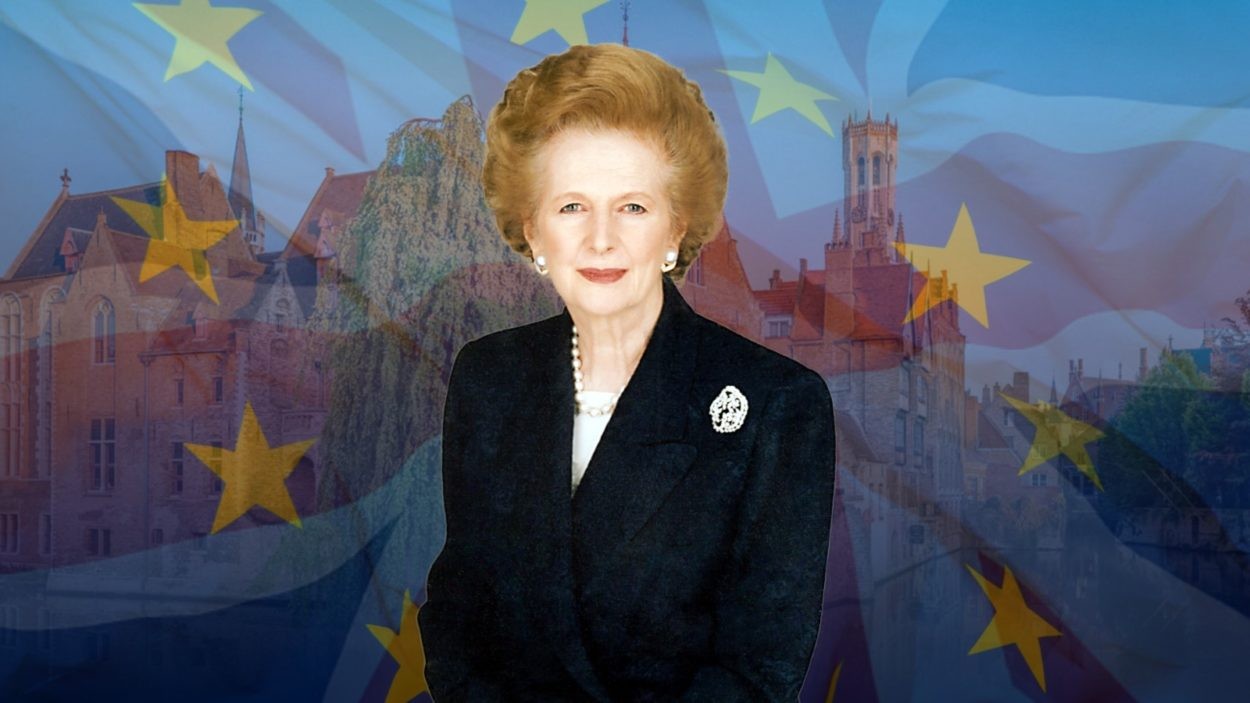Bruges Group Blog
Lockdown has absolutely crippled the economy and what for? We have a similar death rate to Sweden which never locked down, the average age of death from COVID in the UK is 82.4 when the average age of death for the UK as a whole is only 81.2. Not only that, what I would like to see published is the death rates from other illnesses such as cancer, h...
By Shanker Singham As the Agriculture Bill makes its way through Parliament, the UK faces a critical choice in its international trade policy. It is widely understood in trade circles that agriculture is the gate through which all trade policy flows. Long the bugbear of world trade, agricultural sectors all over the world have rigidly op...
By Jonathan Stanley Downing Street would have us believe we are making progress on a free trade deal with the EU. Beyond trying to give away as much of our fish as possible for as long as possible I'm not so sure. Ultimately the Irish border remains a big issue and the recent Internal Market Bill, badly marketed by No.10, only confirms this. ...
As negotiations began the week of an EU summit on the 15th October, there was talk of the EU pressing their chief negotiator Michel Barnier to insist on tough enforcement rules for any UK trade deal. This came as a result of their shock to the Internal Market Bill, yet while any dispute resolution mechanism is normal for any trade deal, the words '...
Perpetual doom and gloom for British science as a result of uncertainty with our relationship with Europe is the mood in the FT this week. The paper recently reported that research and development (R&D) collaboration by British businesses under the EU's research grant scheme has halved since 2016. But contrary to the FT's personal Project Fear ...
The Covid-19 crisis has brought to light a fundamental flaw within the European Union – there is one rule for Germany's state aid regime and another for the UK's. As such there is a fundamental need in negotiations this week to redress this flaw. Data shows that Germany made up for nearly 10% of all EU-authorised State Aid requests from April ...
Samuel Johnson famously said, 'when a man is tired of London, he is tired of life'. However, unlike S.Johnson, it seems that B.Johnson has succumbed to this, in light of the lack of news surrounding the future of our greatest financial asset, the City of London. Whilst the recent focus has been perpetually on State Aid and fishing rights, the City ...
By Catherine McBride On Friday the BBC headline news included an item entitled: Shoppers could pay more after no-deal Brexit. The story was planted by the British Retail Consortium (BRC) who said that tariffs would add £3.1bn a year to the cost of importing food and drink unless the UK and the EU can strike a free trade agreement. This was a ...
Link to initial article By Julian Jessop Brexit talks resumed this week with growing hopes that a trade deal can be done in time for the October EU summit. This follows speculation that the UK has softened its position after Boris Johnson was 'shocked by a London School of Economics report suggesting that no deal would cost Britain up to three time...
Over the past week there have been announcements from Michael Gove regarding the provisions for international lorries leaving the UK after December 31st, something which apparently Macron's government sees as abhorrent. The labelling of these announcements as 'intimidation' by Clément Beaune, Macron's Europe Minister, further shows the EU's hypocri...
European technocrats and their British supporters have been left aghast by the government decision to present the Internal Market Bill, designed to protect the integrity of the United Kingdom. The remainer machinery, which has remained largely dormant over the past few months, has awaken in defence of international law and the United Kingdom's stan...
As reported in The Sunday Telegraph last week, and again today, some Treasury officials have been flirting with the idea of tax increases to foot the bill for the COVID measures put in place and for the lockdown that the left and media were so desperately pressuring for. However, according to several media sources, Number 10, Boris Johnson and Domi...
The election of Erin O'Toole as the Canadian Tories' new leader demonstrates that value-based politics and value-based trading partnerships are truly possible. Erin O'Toole, previously his party's Shadow Foreign Minister, was one of the most vocal advocates in favour of a CANZUK (Canada, Australia, New Zealand, and the United Kingdom) alliance and ...
For over 40 years, New Zealand has been keen to engage, but Britain ignored their pleas. Finally, New Zealand can not only engage, but also be part of a bigger alliance – the CANZUK alliance. CANZUK is a largely economic alliance between Canada, Australia, New Zealand, and the UK based on the principles of free trade and possibly free-er movement. ...
Marathon talks have concluded between EU leaders as they battled over the details of its multibillion-euro pandemic recovery fund. With France and Germany head-to-head against the frugal four of Austria, Denmark, the Netherlands and Sweden over grants, veto rights and funding criteria, you could be mistaken for seeing the talks as the break-up of t...
In the aftermath of the British exit from the EU, the concept of CANZUK, a largely economic alliance between Canada, Australia, New Zealand, and the United Kingdom, all of which have the monarchy, the same common law systems, and parliamentary democracy, among others. However, the question remains, what has stopped these four countries, throughout ...
Brexit may have gone quiet lately in the mainstream media, but between now and the end of October will be critical. Remain have been defeated in trying to keep us in the EU, their plans for a 'People's Vote' have been defeated, and their attempts to extend the transition period have been defeated. Their last hope is that between now and October our...
There's no denying the fact, kratom is having a major moment right now. From being labeled as the most toxic plant in the world to being used as a weight-loss medicine, kratom has had its journey. Its global popularity has encouraged many young entrepreneurs to cultivate this plant and start their kratom business. If you sift through the internet, ...
Having experienced the entire process of leaving the EU since the Maastricht rebellion, through to the passing of the sovereignty clause, Section 38 of the Withdrawal Agreement Act 2020, including the result of the referendum itself, I am thoroughly aware that there must be no ECJ jurisdiction after 31 December 2020. The Governm...
The challenges and the opportunities With the speakers; - Rt. Hon. Sir John Redwood MP- Tim Congdon CBE- Professor Patrick Minford CBE- Dr. Gerard Lyons Professor Tim Congdon CBE:Are Eurozone Trends in Public Debt and Financial Imbalance Unsustainable? Quotations from the April 2020 ECB Economic Bulletin 1. "…th...
There's nothing very surprising when the EU spends money in individual member States to enhance its standing, and to influence people in those States to work in what the EU sees as its interests. That's known as old-fashioned pork-barrelling. But when the EU argues that the bankrolling of political organisations within a State by those outside it i...
Roland Vaubel Professor emeritus of Economics Universitaet Mannheim Germany Mr. Barnier seems to misunderstand the argument for maintaining a level playing field. The laws of a country, above all, ought to reflect the preferences of its people. It follows that the laws ought to differ between countries if, and to the extent that, the preferences of...
Every year the International Council for the for the Exploration of the Sea and the European Union's Scientific, Technical and Economic Council for Fisheries make a suggestion of what the TAC should be for each stock. A stock of fish refers to a "particular species of fish caught in a particular geographic area". The European Commission drafts a pr...
On Friday the European Commission admitted that the Brexit transition period will not be extended, and that Britain must now prepare to police the border in the Irish Sea. In a meeting of the joint committee on the implementation of the Withdrawal Agreement, Michael Gove told Maros Sefcovic, a vice-president for the commission, that the UK wou...
By Victor Hill, first published on Master Investor The UK-EU Trade Talks – Why the pandemic has changed everything - Master Investor By Victor Hill https://masterinvestor.co.uk/economics/the-uk-eu-trade-talks-why-the-pandemic-has-changed-everything/ The Road to No Deal While Europe and the world have been monopolised by the Covid-19 pa...
Margaret Thatcher's Bruges Speech to the College of Europe in September 1988 - YouTube https://www.youtube.com/watch?v=rqv8HF84EOs&t=1s The Bruges Group was set up in 1989 in honour of one speech, a now landmark address made by our then Prime Minister Margaret Thatcher to the College of Europe on 20th September 1988 on the 'Future of Europe'. L...
During this pandemic, I felt it would be the perfect opportunity to take a closer look to the careers of some political giants who don't always get the recognition or remembrance they deserve. One of my greatest interests is political history and every Friday I will publish an article outlining the career and some interesting facts about some polit...
Almost four years after we voted to leave the European Union (EU), Boris Johnson delivered on his promise to 'GET BREXIT DONE'. Little did we know at the time (on 31st January 2020) that the year was going to bring its own woes, which are now threatening to bring down the European dream of unity, solidarity, and borderless territory. In addition to...
Originally published in The Critic by David Scullion https://thecritic.co.uk/the-government-split-over-free-trade/ The Government is committed to signing Free Trade deals. The Conservative Party's 2019 manifesto said as much, and added: "Our trade deals will not only be free but fair". The UK has just started trade talks with the United ...
During these awful and bleak times, I felt it would be the perfect opportunity to take a closer look to the careers of some political giants who don't get the recognition or remembrance they deserve. One of my greatest interests is political history and every Friday I shall publish an article outlining the career and some interesting facts about so...
Institute of International Monetary Research Analysis Professor Tim Congdon CBE is a member of The Bruges Group Academic Advisory Council A lot of interest has been drawn from my recent emails to my fellow macroeconomists and monetary analysts where I pointed out that bank deposits at US commercial banks soared in the fortnight to 2...
During these awful and bleak times, I felt it would be the perfect opportunity to take a closer look to the careers of some political giants who don't get the recognition or remembrance they deserve. One of my greatest interests is political history and every Friday I shall publish an article outlining the career and some interesting facts about so...
First of all, may I say congratulations to Boris Johnson and Carrie Symonds who announced the birth of a healthy baby boy this morning, just after 10 am. It emerged last week that Britain would neither apply for, nor accept an extension, if offered, to the Brexit transition period from the EU. In his briefings, Chancellor Rishi Sunak set the ...
There is a lot of huff and puff today because the European Union failed to agree on a rescue package – there will be no bonds to bail out the superstructure and worst they have had to resort to accepting junk bonds as collateral because Italy will be downgraded. They cannot afford to lose the United Kingdom's budgetary contribution. The European Un...
The UK has been a leading shipping hub, and its EU membership has profoundly enhanced its role in trade. However, on 29nth March 2017, the UK submitted its willingness to withdraw from the UE operations (Brexit), meaning that it will now become the third party according to the EU rules. Shipping will be one of the greatly affected sectors sinc...
During these awful and bleak times, I felt it would be the perfect opportunity to take a closer look to the careers of some political giants who don't get the recognition or remembrance they deserve. One of my greatest interests is political history and every Friday I shall publish an article outlining the career and some interesting facts about so...
If it hadn't been for a massive improvement in technology, the world would have been a very different place right now. No one can deny that technological advancements in the seed industry have improved crop output and continue to suffice for the ever-increasing demand for food.The best part about technological advancements in the seed sector is, th...
Margaret Thatcher's Bruges Speech, 1988 on The Bruges Group YouTube channel https://www.youtube.com/watch?v=rqv8HF84EOs Today marks the death of our greatest peacetime leader, Margaret Thatcher, a woman who defined British politics for more than a generation. Elected as the first female leader of any major political party in the UK in 1975, su...
Just yesterday, the EU's President of the European Research Council, Mauro Ferrari, resigned over the EU's failure to act on his advice to set up a large scale, EU wide programme to combat COVID-19. Professor Ferrari only began the role at the turn of the year and submitted his resignation to the President of the EU Commission, Ursula von der Leyen...
Last Wednesday, the Chancellor of the Exchequer, Rishi Sunak, celebrated 28 days in Number 11, following Sajid Javid's resignation, by presenting his budget to the House. This budget delivered by the Richmond MP is arguably the most favourable budget since the days of Nigel Lawson standing at the dispatch box outlining his financial forecasts and s...
If I had to attribute my entry onto the political stage to any individuals, it would be Mark Carney, George Osborne and Theresa May. Not because I was inspired by any of them but as a result, in the case Mrs. May, of her total ineptitude over Brexit and, in the case of the first two, the inordinate amount of nonsense they spouted in the run-up to a...
Analysis by Prof MLR Smith & Dr Niall McCrae Before the coronavirus pandemic, who knew that the country with the largest Chinese diaspora in Europe is Italy? The leather sofa in many a British living room may have arrived with the label 'Made in Italy' but was quite possibly sewn by Chinese hands in the employ of a Chinese company. Let us expla...
I would like to share with you the speech and presentation I made at The Bruges Group annual conference in London on the 7th March. Whilst the UK officially left the EU on 31 January, it remains in its Single Market [paying some £1 billion (net) a month], its Customs Union and subject to the supremacy of the Court of Justice of the EU (CJ...
Brexit has been the key topic of conversation for many people over the last three years, and since the deal was finalised towards the end of January, the property market has seen a huge increase due to market stability and confidence with investment. Those who are looking at UK property may find the impact of Brexit on the property market highly in...
Following the speeches of Mark Francois MP and Andrea Jenkyns MP, we are delighted to publish Professor Tim Congdon CBE's presentation to the Bruges Group annual conference on March 7th 2020. The Demographic Fate of Nations Women need to have 2.1 children on average in order to replace the current generation. Suppose that they have less than ...
Andrea Jenkyns MP speech to The Bruges Group annual conference - YouTube https://www.youtube.com/watch?v=XMXpkxsAW20 On Saturday 7th March, we were hugely honoured to be addressed by Deputy Chair of the ERG, Andrea Jenkyns MP, at our annual conference. Andrea is a staunch Brexiteer and friend of The Bruges Group, she was a more than vocal critic of...
Mark Francois MP's speech to The Bruges Group annual conference - YouTube https://www.youtube.com/watch?v=fZWLTchiEus The Bruges Group were honoured to have The Rt. Hon. Mark Francois MP, Chairman of the ERG, address our annual conference at Buckingham Gate in London on Saturday 7th March. The Bruges Group conference proved, as ever, to be an immen...
Brexit is finally underway. By January 2021, the UK will be in a new position to help redefine itself in the world of global trading. Hopefully, it's going to put the country in a far more flexible economic environment. Free from the shackles of EU trading coffers, exciting times lie ahead, not only for businesses and their owners but for everyday ...
Brexit provides British agriculture with the chance of a lifetime. While the EU is desperately trying to find the money to prop up its ailing and corrupt Common Agricultural Policy, Britain can plan for a productive future. Free from the chains of the EU's Common Agricultural Policy, we can now consider how to feed ourselves, look after our c...
The European Union is facing one of its biggest challenges with the departure of one of its largest financial contributors in a midst of a widespread debt crisis. The United Kingdom on the other hand may have avoided one by implementing the 2016 referendum results thanks to Boris Johnson's thumping majority at the last General Election in Dece...
We are scheduled to begin what will hopefully be our last trade talks with the EU; I suspect we can be sure of a bumpy ride featuring the same of old EU tricks of deceit, mendacity, obfuscation, procrastination, threats and attempts to undermine our position through appeals to the Brussels 'Fifth Column' that is apparently still alive and well, and...
The look on my left leaning parents faces was a picture of horror as they stared down at my eight year old self, they looked at each other and said in shock and in unison: "Our son's a Conservative". My dear old dad, who I loved during all 84 years of his life, had been a member of the Communist Party in his youth, that was until they asked h...
What is the reason that makes college graduates earn significantly more than individuals without a college degree? What is the correlation between any country's economy and its schooling system? Understanding the existent link between a nation's education system of a nation and its performance economically is crucial for comprehending why some work...
Boris Johnson and the Conservatives winning a more than impressive 365 seats last December, it gives the PM a working majority, something we haven't seen since the close of the Blair/Brown era.It is fair to say that the next step of Brexit will soon be taken; having left the EU further delays for implementation legislation were not tolerated. But w...
The first part of this article describes my experience of aid, starting over 40 years ago in Africa, and then in the ex-Soviet Union. Some will hotly deny my conclusions, but their veracity is only too apparent in the current state of the world and the decline in western values. Part one deals with the background and part 2 illustrates it...
In Quentin Lett's estimable tome, 50 People Who Buggered Up Britain (2009), there was one surprising entry for a writer of such conservative leanings: Margaret Thatcher. The rationale for inclusion was her government's aggressive attitudes towards trades unions, especially the rough handling of striking miners at Orgreave in 1984, along with her lo...
The Brexit Agreement and regulatory checks affecting Northern Ireland By Simon McIlwaine An aspect of the Prime Minister's withdrawal agreement with the EU causes much anxiety among supporters of the UK's withdrawal and Northern Ireland in particular. Whether or not there is going to be any kind of internal UK border is causing great concern i...
On 24 June 2016, when the Brexit Referendum result was announced, I was thrilled. The Great British Public had voted to take back their nation and return to self-determination. However, my excitement swiftly dissipated, as in the following years, Brexit was progressively watered down and smear campaigns about Brexit, or 'Project Fear' as they becam...
We recently returned from a trip to S.E. Asia, mostly holiday, but meeting with some of my wife's clients too. Smog, created by Indonesian farmers' crop burning joined the humid heat to hang like a blanket over Bangkok, our first stop. The difference to late September London was a shock. Less of a shock was driving on the left and familiar names li...
This article was initially published on BrexitCentral https://brexitcentral.com/why-the-brexit-party-maintains-that-boris-johnsons-deal-is-not-brexit/ by Brexit Party MEP, Ben Habib Ben Habib believes there is an "understandable desire amongst many Brexiteers to accept Boris Johnson's deal". Everyone is battle weary, but it is preci...
Boris Johnson has really taken us on a ride here. The trick, ladies and gentlemen, was to make us believe that he intended to take us out of the European Union with or without a deal, even with the Benn Act and all will be revealed in time and it was. There was no way he could avoid the Benn Act so didn't just send one letter to the European Union ...
As I assume you know, the Benn Act, or more commonly known as the Surrender Act, isn't the most well thought out piece of legislation, as lined out by Chair of Lawyers for Britain Martin Howe QC at The Bruges Group 'Moment of Truth' event in Manchester during Conservative Party conference. This article will outline the loopholes that Boris Johnson,...
The reaction of the European Union negotiators and heads of state to Prime Minister Johnson's recent slate of proposals for eliminating the Irish backstop has exposed a fundamental truth about the Brexit negotiation process. So long as the EU must consent to British proposals for leaving under Article 50 of the Treaty of the European Union, the EU ...
What's so good about free trade agreements? They make the rich richer, workers poorer, and they rob countries of the ability to plan. For decades we have been told that global free trade – where goods can be imported and exported without restrictions or tariffs – is the route to prosperity. Impressive international institutions have been const...
Authors: Ethan Thoburn, and Charles Wynne There are plenty of people talking about no deal Brexit at the moment and with Boris Johnson looking ever more likely to deliver that, we at The Bruges Group thought we would put together sort of a fact sheet on No Deal and how it won't leave us on a so called cliff edge as lots of the media like...
The same four-letter word is being constantly branded around by the media. Whether talking about Theresa May's legacy, or discussing Boris Johnson's new negotiation, it never fails to disappear. That four-letter word is "deal". Yet this "deal": offered by Brussels, sold by Theresa May, defeated by MPs; seems dangerously close to being reborn. This ...
The left were always solidly against the Common Market and remained so as it evolved through the EEC to EU. The reason was simple. Its rules stood in the way of a Socialist state. Blair, having defeated Clause 4, became an ardent advocate of the EU and repositioned Labour as a centre party. Labour has always been a target for extremist entryism and...
Interview with Alice Grant: 'Why People Support Brexit Series' - Bruges Group Blog By Ethan Thoburn https://www.brugesgroup.com/blog/alice-grant-interview-with-ethan After previously speaking to Brexit supporting student Alice Grant and then royal superfan and former Labour Party member Joseph Afrane, this episode I spoke to the organisers of the '...
Project Fear 3.0 has been in full swing since the summer as we approach 31st October 2019, the third date for leaving the EU. The unfortunate citizens of the UK who wish to leave the European Union have been fed wall-to-wall saturation coverage of how terrible Brexit will be. TV stations, newspapers, magazines and social media advertisements contin...
Initially published on 13th September and updated on 26th September With the Brexit pea soup not looking any clearer whatsoever, Boris Johnson's hopes of an early general election are fading by the minute as I type this and of course Parliament being prorogued from the evening of Monday 9th September until 14th October. It's interesting to se...
Our fight with Brussels does not end on the 31st of October. This wider conflict that Brexit represents is between sovereign nations and supranational organisations, between self-determination and central planning of the most wicked intention. In order to capitalise on our departure, we must first recognise a weakening, Brussels is tightening its g...
Over the past three or so years, us Brexiteers have been labelled with all sorts of names such as fascists and racists, among others. There is an ever-growing perception that we are all over 80, own grand estates and are on the far-right wing of the political spectrum; let me tell you we are not! I have spoken to people from all backgroun...
The following article and above PDF are speeches by Richard Tice MEP for the Brexit Party and also property businessman; Swedish-British billionaire businessman Johan Eliasch who is CEO of sportswear giant Head; Sir John Nott the former Secretary of State for Trade and Industry then Defence under Margaret Thatcher; Peter Lilley the former Sec...
Today we'll know who our next Prime Minister will be, and Wednesday will see the Maybot's last PMQT before she heads off to formally resign to the Queen at Buckingham Palace on the afternoon. No matter who our next PM will be, either Boris Johnson or Jeremy Hunt, we need to rebuild that special relationship with our closest ally, America. We'...
The Scottish National Party's minority administration in Edinburgh is trying to contribute to the attempt to foil Brexit and the struggle to achieve sovereignty and independence for the whole of Britain. But it's not doing well… While efforts in the British parliament to halt our exit from the EU are being roundly defeated, pro-EU fervour has conti...
When we hear about gambling as it relates to Brexit, it's typically regarding betting on different outcomes. Inevitably, there have in fact been betting markets these past few years aimed at predicting when Brexit might happen, what it might look like, etc. What doesn't get as much attention though is the idea of what effect Brexit could have on th...
Switzerland and the European Union have begun open financial war with each other as the EU tries to force the country to sign the proposed Framework Agreement covering all aspects of the country's relations with the EU. The EU has been forced into a hardball approach to Switzerland because with Brexit still unresolved it cannot afford to be weak. I...
Here is the fantastic Sir John Redwood MP's article first published on Brexit Central (https://brexitcentral.com/a-determined-prime-minister-can-ensure-we-are-out-of-the-eu-by-31st-october/) outlining how the right man can take us out of the EU by 31st October. For too long we have witnessed this Parliament trying to delay or dilute Brexit. T...
As the Conservatives elect their replacement for Theresa May over the summer, it's worth looking back to see how crucial it is for a leader that is in line with grassroots views, and currently Euroscepticism is the overwhelming grassroots position among members. Ever since the Maastricht Treaty was signed in 1992 there has been a battle for a refer...
Artificial Intelligence is certainly an area of focus post Brexit, the sector of AI was worth around $1.2 trillion as of around 2018 with predictions from Zdnet.com estimating the growth of the AI business values to around $3.9 trillion by 2022, that's a huge amount for any sector; this roughly equates to a forecasted prediction of just over £3 tri...
The withdrawal agreement is not only unjustified but also not required. In the event of the UK's departure from the EU without a withdrawal agreement the EU itself has put in place measures to keep trade open. These range from agreeing to equivalence in financial services, access for hauliers, the continuation of flights, and the transport conventi...
Through the treachery of the government and MPs, Britain is in political and economic limbo. Instead of being free to taking back control, they have handed the future of the country over to the EU… Delay, and more delay. Britain is now going to be denied independence for up to 6 months longer, a total of three-and-a-half years after voting fo...
This article is a follow up to my previous post entitled 'Nissan, Felixstowe, Lettuces and Whisky' in which I proposed a system of refunding foreign importers of British exports for the import tariffs they will pay to their own governments after Brexit, thereby allowing our exports to continue unaffected. If nothing is done about this our exports w...
Britain was a leader in international trade for centuries, long before the EU was even thought of. As an EU member state, the UK cannot now trade on our own terms with the rest of the world. Decisions are made for us, based on the interests of the EU 28 - not the UK.Today, the UK is still a member in its own right of over 100 international organisa...
At the end of January, I was interested to learn how the BBC's news website reported Italy's recession. It was not on their radar. Unsurprisingly, several scare stories were. One, by business editor Simon Jack, was headlined "No-deal Brexit to leave shelves empty warn retailers." My attention was grabbed, however, by a dramatic warning with a state...
The alternative to May's deal is not no Brexit but no deal. Britain could leave the EU on 29 March without a deal and trade with EU member countries on World Trade Organisation terms. These are the terms on which we trade with non-EU countries already, without falling off any cliff. No deal is Brexit. Her deal is no Brexit. 'No deal' merely means t...
Published on 7 January 2019, the Rt Hon Lord Peter Lilley and Cllr Brendan Chilton, Global Britain and Labour Leave outline the huge advantages to trade gained by leaving the EU on World Trade Organization terms. Far from 'crashing out' we will be 'cashing in'. We will keep our £39 billion. Even the House of Lords' heavily pro-Remain EU Financ...
I am sure we all understand the situation Nissan and other companies which export a majority of their UK production to the Eurozone will find themselves in after Brexit. They will face 10% tariffs by the EU on these exports, and it stands to commercial reason they would then be better off re-locating their production into the Eurozone, where they w...
The media is trumpeting a very scary tune about a 'no deal' Brexit. Perhaps it's the swansong in their dark and gloomy concert. There will be hurdles, but we in Britain, will use our initiative and people are always at our best when we have to use our initiative. For those who would like to rename 'no deal', the Bruges Group is welcoming suggestion...
Amidst the political fallout in the UK following the government's controversial draft Brexit deal, an equally important development in Ireland went relatively unnoticed. During the ruling Fine Gael party's annual conference, foreign minister Simon Coveney confirmed that Ireland has no plans to prepare infrastructure for a hard border with the UK, e...
Any sort of trade deal with the EU is bound to result in economic meltdown. Here's how and why. Author: John Poynton This graph shows our Balance of Payments Current Account – in effect our national profit and loss account, comprising mainly but not exclusively of trade – split into two separate components; our trade with the EU (the red line...
For centuries, wool was the mainstay of our economy; so vital that Edward III ordered his Lord Chancellor to sit on the woolsack. Export of raw wool financed trade and new towns. Flemish and Huguenot weavers fleeing European persecution added their skills. By the 16th century, English cloth dominated European markets. It provided the trade good use...
In the context of Brexit, things would be so much tidier if it wasn't for Northern Ireland. The province not only obstinately voted Remain, but also inconveniently promises to bring with it a new, uniquely porous, EU land border. If somehow one could leave Northern Ireland as a member of the EU and have the frontier redrawn in the Irish Sea, life w...
Your Royal Highness, your Excellencies, Chairman, my Lords, Ladies and Gentlemen. Good afternoon. I wish to thank the Chairman and Ms Melissa Crawshay-Williams for their kind introduction and to congratulate and thank the members of our Council for their kindness, courtesy and professionalism in arranging this event. I wish to speak of the changing...
The way in which the EU goes about producing the laws that bind the rest of us - whether our politicians like them or not - can be difficult to understand. If you're not intimately familiar with it, don't worry. You're in good company. If really interested, you'll find it in Arts.288-299 of the Treaty on the Functioning of the European Union, a tur...
A policy model for a clean Brexit - no queues at Dover, no Irish hard border Membership of the EU Customs Union and the (largely contrived) Irish border issue are once more on the front pages. After success in the Lords, Remainers smell blood and are slavering at the prospect of defeating the Government in forthcoming Commons votes. Given thi...
Contact us
246 Linen Hall, 162-168 Regent Street
London W1B 5TB
Director : Robert Oulds MA, FRSA
Founder Chairman : Lord Harris of High Cross






